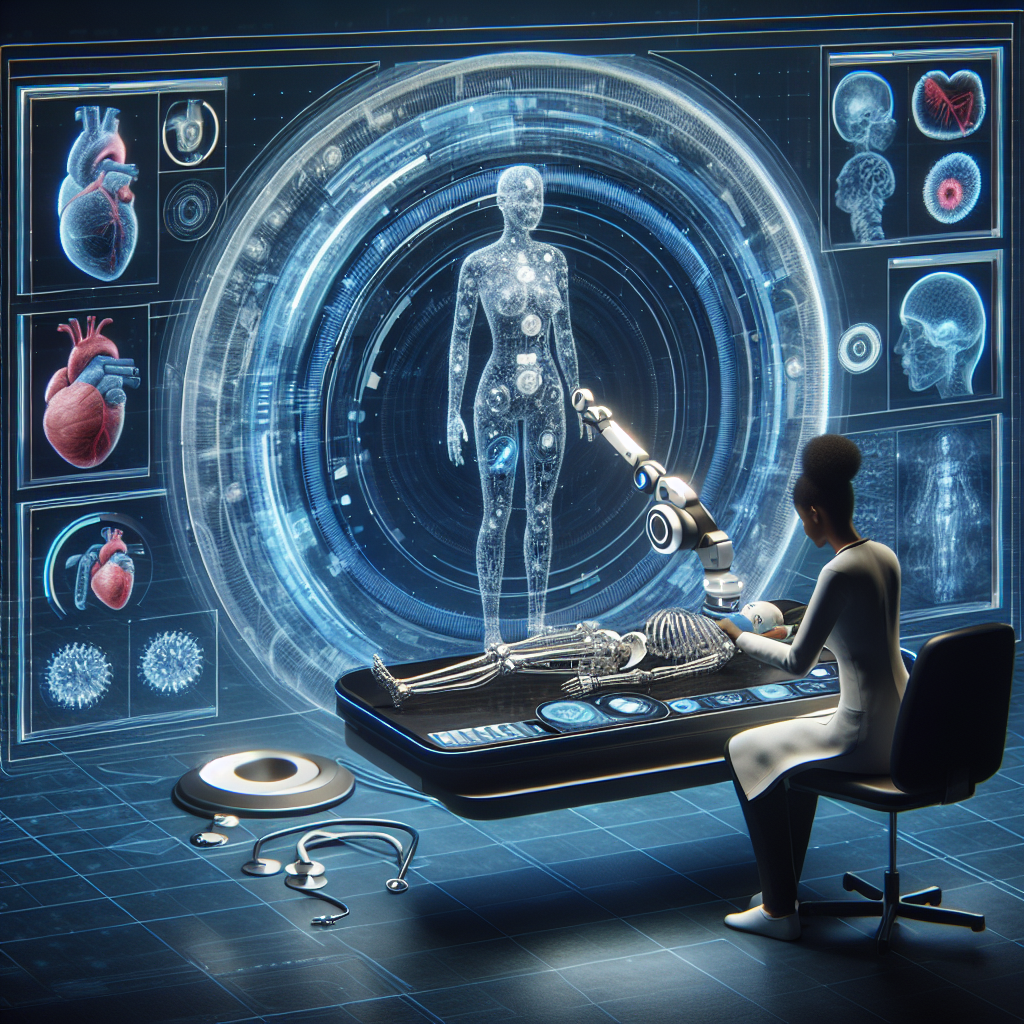The Role of AI in Personalized Medicine
Personalized medicine is an emerging field in healthcare that aims to tailor medical treatment to the individual characteristics of each patient. This approach takes into account factors such as genetics, lifestyle, and environment to provide more effective and precise treatments. Artificial intelligence (AI) plays a crucial role in personalized medicine by analyzing vast amounts of data to identify patterns and make predictions that can help healthcare providers deliver more personalized care.
AI technologies, such as machine learning and natural language processing, have the potential to revolutionize personalized medicine by enabling healthcare providers to better understand and treat individual patients. By leveraging AI, healthcare providers can analyze large datasets, including genetic information, medical records, and patient-reported data, to identify patterns and trends that can inform treatment decisions. This can lead to more targeted therapies, reduced side effects, and improved outcomes for patients.
One of the key benefits of AI in personalized medicine is its ability to process and analyze data at a speed and scale that is beyond human capabilities. AI algorithms can quickly sift through vast amounts of data to identify relevant patterns and make predictions that can help healthcare providers make more informed decisions. This can lead to more precise diagnoses, more effective treatments, and better patient outcomes.
AI can also help healthcare providers better understand the underlying causes of diseases and identify potential treatment targets. By analyzing genetic and molecular data, AI algorithms can identify genetic mutations and other factors that may be driving a patient’s disease. This information can help healthcare providers develop targeted therapies that are tailored to the individual characteristics of each patient.
In addition to improving treatment decisions, AI can also help healthcare providers better predict disease outcomes and monitor patient progress. By analyzing data from wearable devices, electronic health records, and other sources, AI algorithms can identify patterns and trends that may indicate a patient’s health status. This information can help healthcare providers intervene early to prevent disease progression or complications.
Overall, AI has the potential to transform personalized medicine by enabling healthcare providers to deliver more precise, effective, and personalized care to individual patients. By leveraging AI technologies, healthcare providers can analyze vast amounts of data to identify patterns and make predictions that can inform treatment decisions. This can lead to more targeted therapies, reduced side effects, and improved outcomes for patients.
FAQs:
1. What is personalized medicine?
Personalized medicine is an approach to healthcare that aims to tailor medical treatment to the individual characteristics of each patient. This approach takes into account factors such as genetics, lifestyle, and environment to provide more effective and precise treatments.
2. How does AI play a role in personalized medicine?
AI technologies, such as machine learning and natural language processing, can analyze large datasets to identify patterns and make predictions that can help healthcare providers deliver more personalized care. By leveraging AI, healthcare providers can analyze genetic information, medical records, and patient-reported data to inform treatment decisions.
3. What are the benefits of AI in personalized medicine?
AI can process and analyze data at a speed and scale that is beyond human capabilities, enabling healthcare providers to make more informed decisions. AI can help healthcare providers better understand the underlying causes of diseases, identify potential treatment targets, predict disease outcomes, and monitor patient progress.
4. How can AI improve treatment decisions in personalized medicine?
By analyzing genetic and molecular data, AI algorithms can identify genetic mutations and other factors that may be driving a patient’s disease. This information can help healthcare providers develop targeted therapies that are tailored to the individual characteristics of each patient.
5. How can AI help predict disease outcomes in personalized medicine?
By analyzing data from wearable devices, electronic health records, and other sources, AI algorithms can identify patterns and trends that may indicate a patient’s health status. This information can help healthcare providers intervene early to prevent disease progression or complications.
In conclusion, AI has the potential to revolutionize personalized medicine by enabling healthcare providers to deliver more precise, effective, and personalized care to individual patients. By leveraging AI technologies, healthcare providers can analyze vast amounts of data to identify patterns and make predictions that can inform treatment decisions. This can lead to more targeted therapies, reduced side effects, and improved outcomes for patients.

